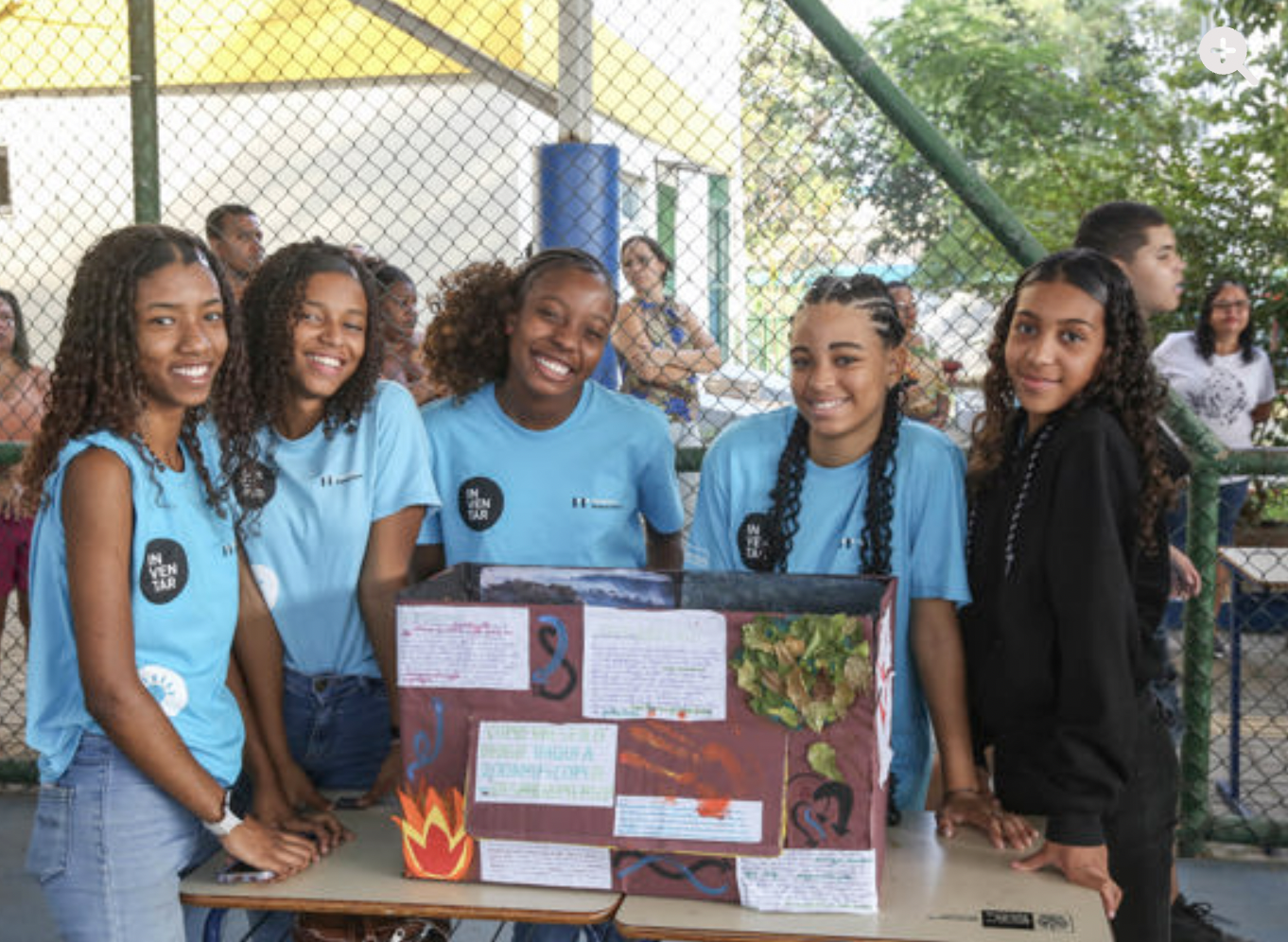The Student Project Open Day Exhibitions (MAPE in Spanish) were held in the communities of Campana and Ramallo (Argentina), Pindamonhanga and Santa Cruz (Brazil), Cartagena (Colombia) and Montevideo (Uruguay). Nearly 1,400 students astonished and amazed onlookers with a range of inventive projects that propose solutions to problems related to sustainability on our planet.
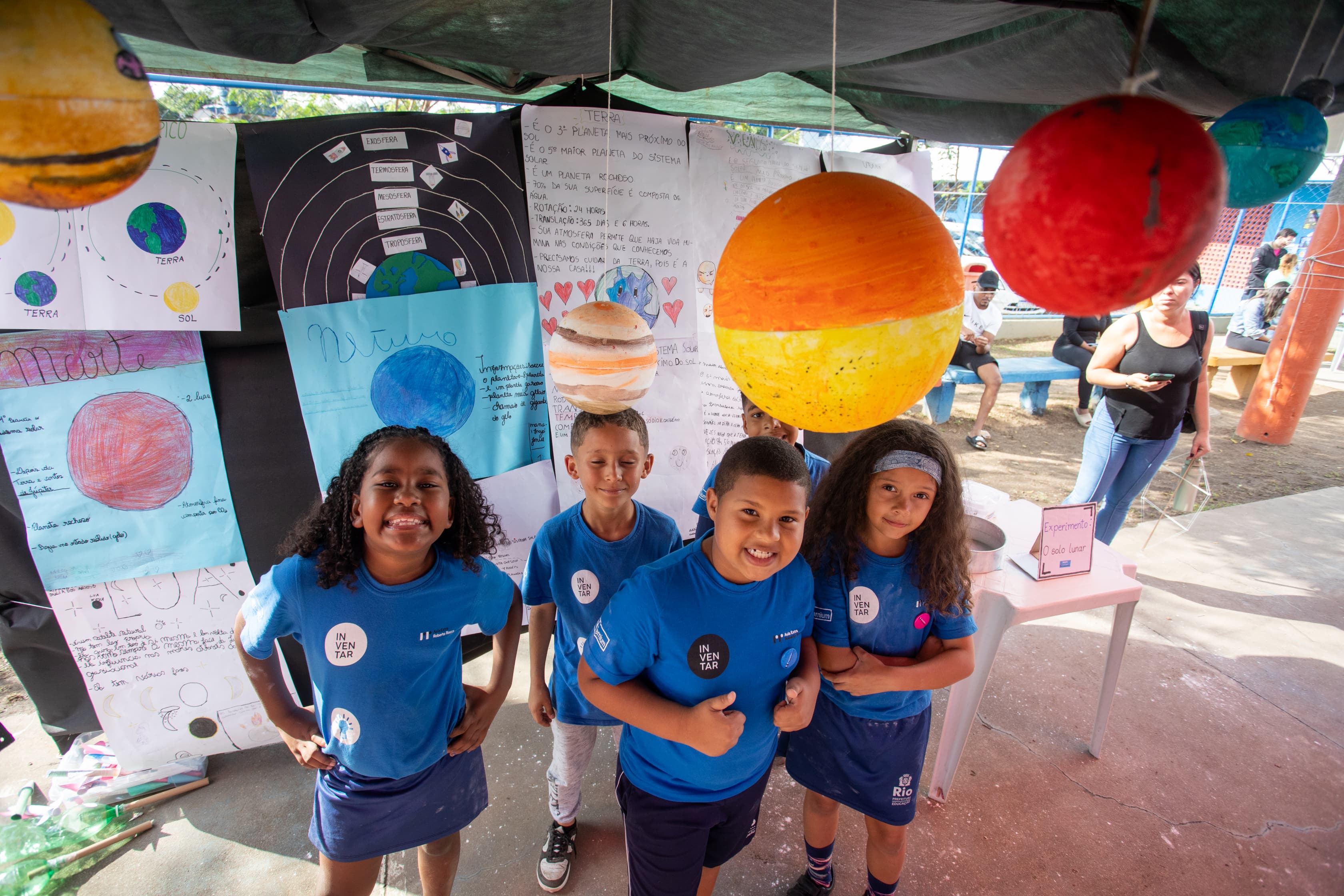
In July, within the framework of the Roberto Rocca After School program, a series of Student Project Open Day Exhibitions (MAPE) were held in the communities of Campana and Ramallo, in Argentina; Pindamonhangaba and Santa Cruz, in Brazil, Cartagena, in Colombia, and Montevideo, in Uruguay. Around 1,400 students participated, presenting their work before the eyes of the entire local educational community. Let’s find out what went on!
In Argentina
Campana
The MAPE was held at Primary School No. 10 in the La Josefa neighborhood, where 121 students participated. They presented 25 projects developed using the Project-Based Learning methodology, as part of a combined effort to find a solution to a problem they identified in their community.
“So, we take a particular problem, ask the main triggering question and then the students act like young scientists, working to find solutions that will answer that question. Throughout the process, they research and develop products and solutions linked to our STEM modules (Science, Technology, Engineering and Mathematics),” explained the program coordinator Débora Biain.
One of the projects aimed to prevent water from stagnating in ditches, reducing the risk of mosquito larvae breeding. The team developed a prototype featuring a mill that stirs and circulates the water. Made from perforated cement to trap sediment, the device’s blades are powered by a solar panel, ensuring continuous movement and flow.
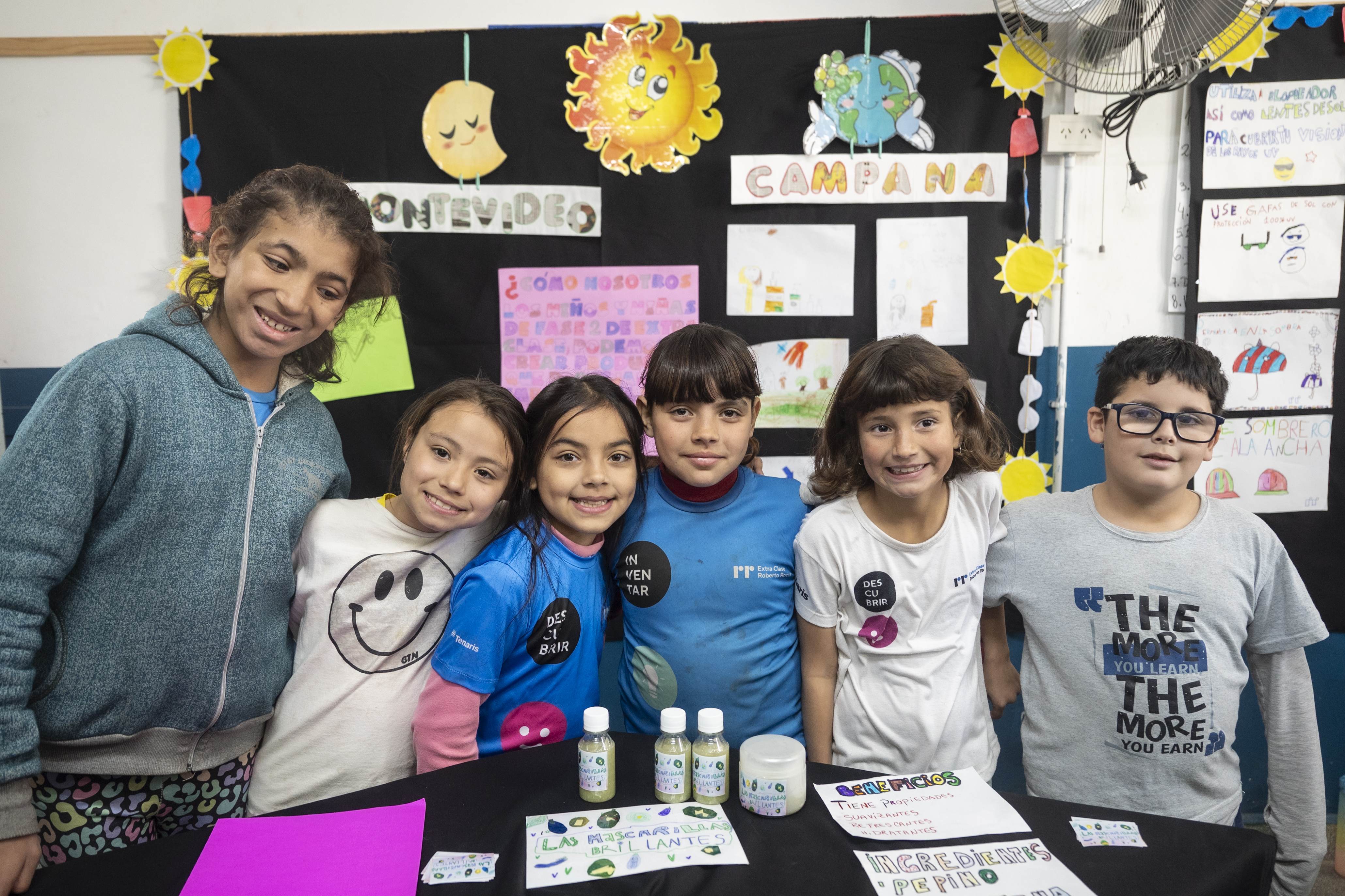
Virginia Larrosa’s two children Airén and Lisandro are taking part in the program. “They’ve improved a lot of attitudes,” she points out. “They’ve lost their shyness and every time I see them at school, I notice that they are much more relaxed. We are fortunate to have After School in our neighborhood.”
For Cristina Romero, mother of student Chabela, everything changed when she was able to visit a previous edition of the MAPE: she was so enthusiastic about the proposal that she enrolled her daughter in EP N°10 so that she could also join the Roberto Rocca After School. "It opens up a whole new world of possibilities for them, and it’s helped her to express her ideas, bringing her down to earth. It’s taught her how to manage projects and how to interact with other people, as she did with all the people who toured the open day," said Cristina enthusiastically.
Ramallo
The MAPE was held at Provincial School No. 26 and 170 students participated. In total, they presented 18 projects related to biomaterials, energy efficiency and natural products.
Products developed from biomaterials are both biodegradable and compostable, allowing them to be integrated into any food chain without harmful effects. One example is biodegradable straws made from corn starch and gelatin-based biomaterials, designed to replace traditional plastic straws. Another project featured biodegradable and compostable containers made from corn flour, available in two versions—one using coal ash and the other incorporating sawdust.
Additionally, natural skin hydration products were presented, utilizing eco-friendly resources for cosmetic use that protect both the skin and the environment. Among them was a natural aloe vera-based cream, combined with a biodegradable preservative derived from natural sources to extend the product's shelf life and prevent microbial growth. Another highlight was a natural lip balm made with shea butter and pure vegetable oils, designed to protect lips from dryness, while moisturizing and regenerating cracked skin.
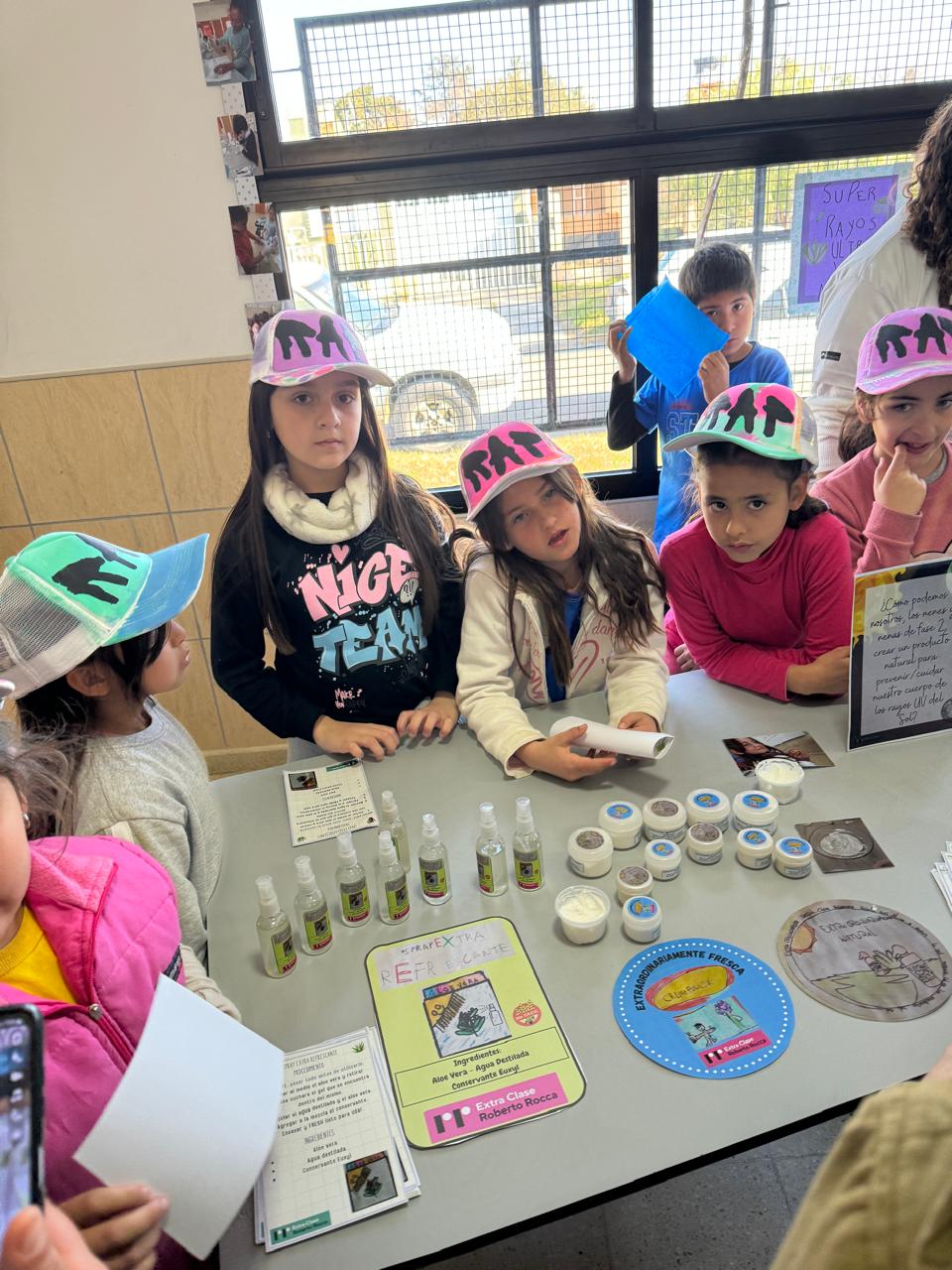
This is what Gaspar Duarte, an After School participant and student at Provincial School No. 26, had to say about the exhibition:
I love MAPE because it lets us show off everything we've been working on all year! It's amazing for people who visit to see all the cool things we can do—what we've learned, how we see the world, all the awesome stuff we know, and the creative projects we made. It’s such a great way to celebrate all of that!"
For Agustina García, leader of the program, “MAPE is such a valuable learning experience for these children. It’s not just about showcasing their projects; it’s a chance for them to see how their knowledge has grown through exploration, research, experimentation, and teamwork. Watching them share their creations with so much enthusiasm and seeing the positive impact their work has on the community is incredibly rewarding!”
In Brazil
Pindamonhangaba
In this community, the MAPE was spread out over three days, with the participation of nearly 200 students, who exhibited 20 STEM, art and recreation works, enriching the learning experience.
One standout project involved the design and construction of boats using unconventional materials like noodles, lasagna dough, and hot glue. Once the boats were built, students put their creations to the test, placing them in water and gradually adding water bottles of varying volumes to assess their flotation capacity.
Santa Cruz
370 students participated in the MAPE in this Brazilian community, presenting projects on nature, climate change and the solar system, putting the sustainability of the planet on the agenda.
The exhibition unfolded through three dynamic events. In the first, 8th-grade students presented models, posters, and interactive displays to explore the causes and effects of climate change, offering potential solutions. The second event, hosted at the Japão Municipal School, delved into projects focused on the solar system. The final event featured a simulation of the UN plenary, where students, divided into eight groups, proposed strategies to advance the Santa Cruz 2030 Program, a sustainable development agenda for Rio de Janeiro’s western zone that bridges civil society and the private sector. Throughout the event, students were able to show their socio-emotional skills in action, excelling in argumentation, collaboration, and critical thinking.
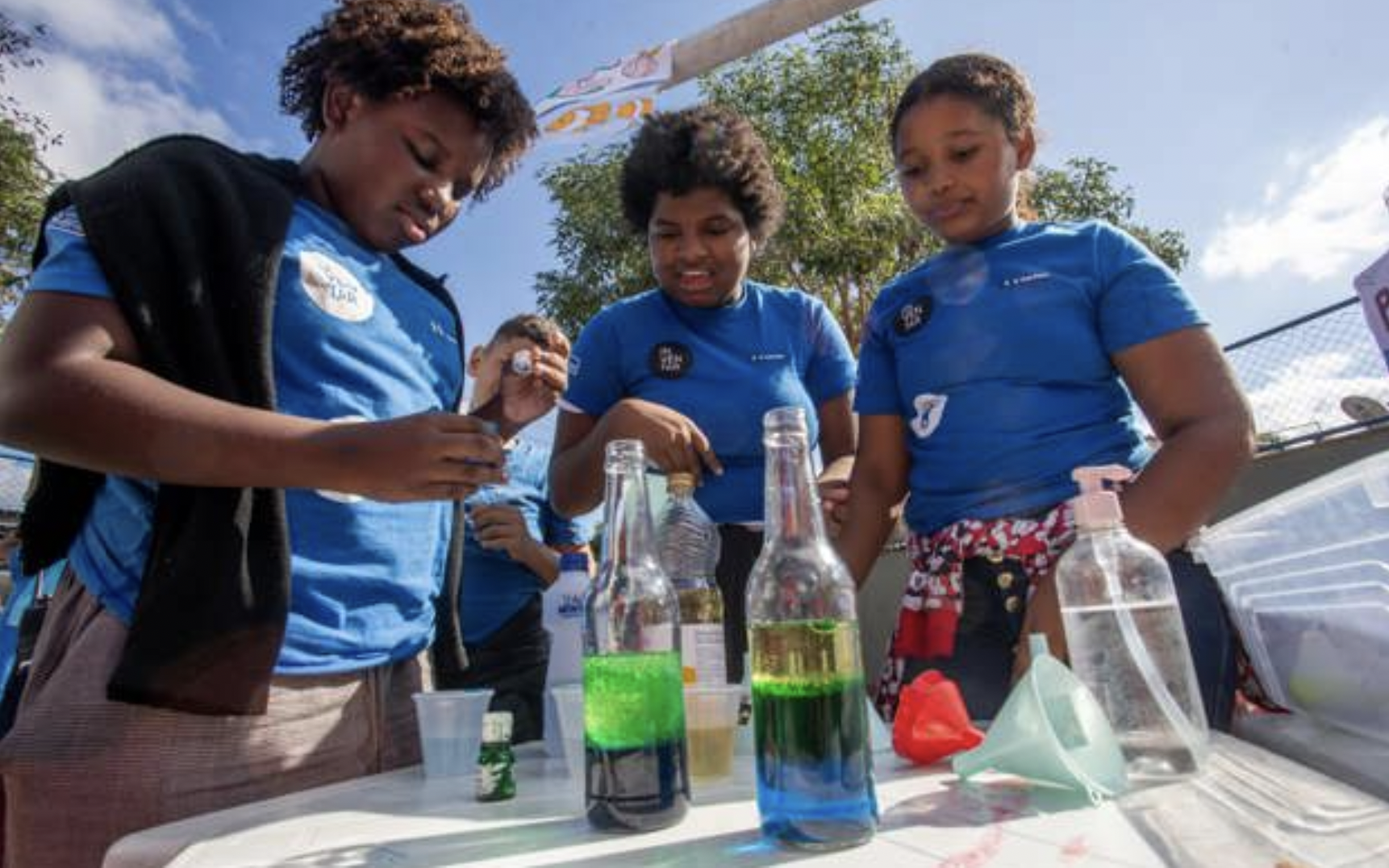
Emily Rocha, a 9th-grade student at the Emiliano Galdino Municipal School, highlighted: “Before diving into the 2030 Agenda proposals for Santa Cruz, I had never really taken the time to reflect on where I live. We go about our daily lives without giving much thought to how we can actually make a difference and shape our environment for the better.”
For Mayara Oliveira, from the Institutional and Community Relations team, “MAPE isn’t just about presenting all the hard work done over the course of the semester; it’s also about raising awareness of the importance of sustainable actions for a better world. Our goal is to nurture young people who are critical thinkers, future leaders, and true agents of change, all while promoting the development of their community. We want them to leave a positive mark on the world!"
In Colombia
Cartagena
In Cartagena, the MAPE was held at the Bernardo Foegen school and attended by 350 people, including parents, teachers, and students from nearby institutions, as well as participants from the Roberto Rocca Technical Gene program. 360 students from the Roberto Rocca After School program presented 64 projects, which were notable for their commitment to solving problems detected in their community.
One of these projects was the “smart trash can,” which has a device that allows it to open automatically thanks to a built-in motion sensor.
Miguel Díaz, Phase 3 After School Leader, explains how the process unfolded: “After several visits to the community, the children discovered two key issues: some residents with disabilities and a more general problem with waste management. From these observations, they came up with a solution designed to reduce the obstacles preventing proper waste disposal and promote environmental preservation. Their initiative is all about making the community more inclusive and sustainable."
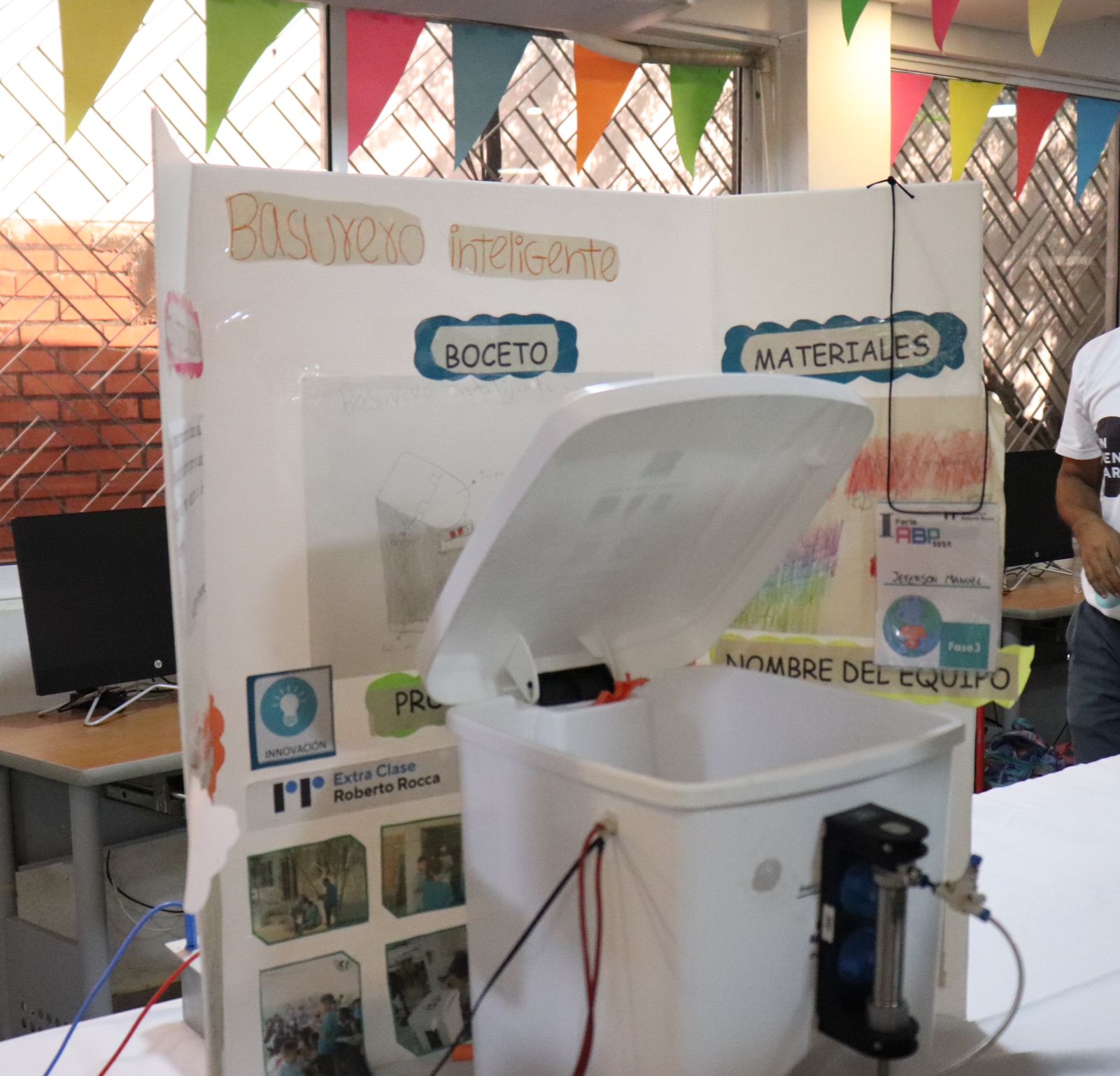
In Uruguay
Montevideo
365 students from the Vedruna, María Inmaculada, Cristo Divino Obrero and Santa Bernardita schools participated in the latest MAPE edition, where the Roberto Rocca After School program is held on a routine basis. 12 projects were presented, including the “hotel for pollinating insects”. The students discovered that many of the insects that they had living in and around their school were in fact beneficial to the ecosystem, so they decided to create these little “hotels” to foster greater biodiversity.
Thanks to the research they carried out, and with the support of the NGO Urumepa, they were even invited to participate in the Expo Uruguay Sostenible, where they shared their project with thousands of people.
“We created several models of insect hotels, carefully considering the types of insects we wanted to attract. Our goal is to donate these hotels to educational centers near our school, helping to spread awareness about biodiversity and inspiring others to take action. It’s all about continuing to promote the care of our environment and sharing these ideas with the community!” said Leandro Gelpi, the Coordinator at the Vedruna Offices. It’s important to point out that the students' parents were invited to participate in the construction of the hotels.
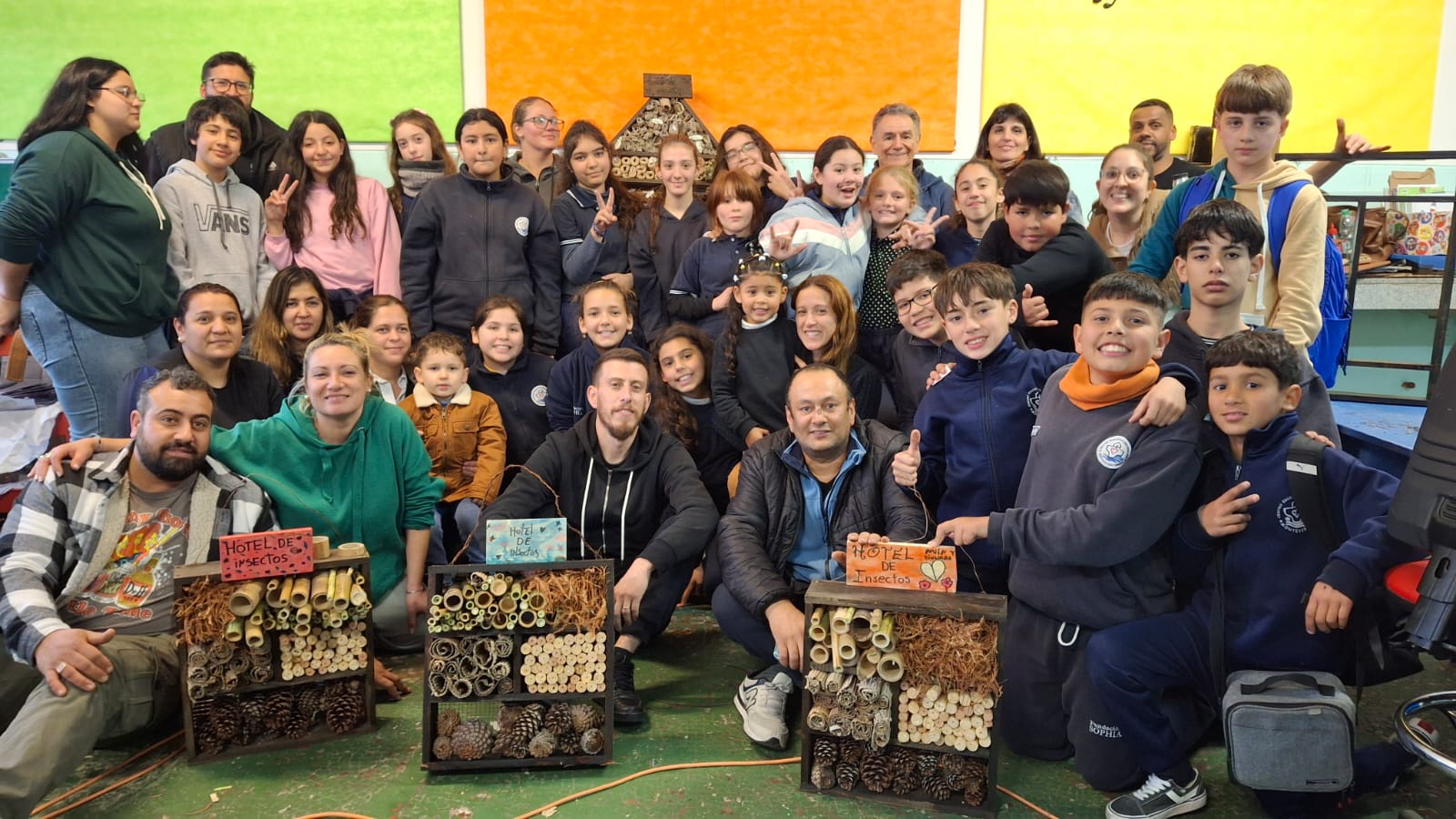
The Roberto Rocca After School program is dedicated to fostering equal opportunities by nurturing the growth of students aged 6 to 15 through an innovative, extended-hours learning experience in a safe and supportive environment. With a focus on building STEM knowledge and skills, the program inspires young minds through active learning, while also fostering socio-emotional and essential 21st-century skills. Serving as a beacon of cutting-edge educational practices, it is making a meaningful impact on communities. Now in 27 schools across seven countries, the initiative reaches 2,394 students, shaping the future of education.
